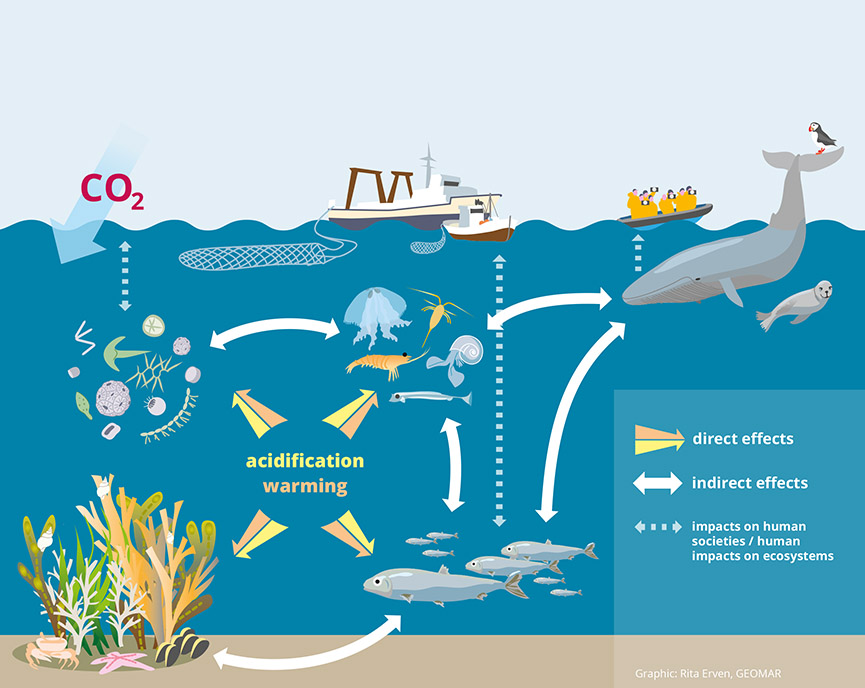
Reaching the Paris climate target
As science gained valuable insights into the effects of climate change on the ocean, it has become possible to predict the direction of many alterations within the complex and dynamic system. But it has also become apparent how difficult it is to form a clear picture. There is no doubt that elemental cycles and marine communities will change and that these changes will impair ecosystem services provided by them. But science is not yet able to assess the exact extent of the risks.
According the precautionary principle – a guideline for German, European and international environmental policies – urgent actions need to be taken to avoid or minimise these risks. The later development towards low-emission and sustainable lifestyles and economies sets off, the larger the effort for adaptation and compensation of irreparable damage becomes.
The Paris Agreement represents an important step in the fight against climate change: In December 2015, the members of the United Nations Framework Convention on Climate Change (UNFCCC) jointly decided to limit human-induced global warming to well below 2, if not 1.5 degrees Celsius. To prevent temperatures from rising by more than 1.5 degrees compared to pre-industrial times, the carbon dioxide concentration in the atmosphere would have to stay below 430 parts per million (ppm). But even for values between 1.5 and 2 degrees, global emissions need to drop to zero very soon. In addition, increasing amounts of the carbon dioxide emitted already need to be removed from the atmosphere and captured safely. Sustainability can only be achieved if society, businesses and politics act together. The reduction of emissions will also keep ocean acidification and risks related to it in bounds. BIOACID is contributing important knowledge to this process.
READ MORE: Important BIOACID results
Figure: Ocean acidification and warming are able to affect organisms directly and amplify or attenuate each other’s effects. Reactions of individual species also impact other parts of the food web as well as marine communities indirectly. Ultimately, the interplay of effects even has consequences for important ecosystem services such as the uptake and storage of carbon dioxide storage, food provision from fisheries or the recreational and cultural values of the ocean.